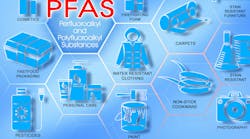WASHINGTON, DC, Jan. 14, 2010 -- The World Bank Board of Executive Directors approved today a US $190 million loan for the Pernambuco Sustainable Water Project, in Northeast Brazil, aiming at assuring universal access to safe water supply and sanitation services to the population of the one of the driest states in Brazil.
"The efficient water resources management, water supply and sanitation services provision have a direct impact on the economy, sustainable and equitable development and welfare of the people of our state. Therefore, the Government of Pernambuco has developed a strategy for the sector to improve the state water resources management ," said Eduardo Campos, Governor of Pernambuco. This partnership with the World Bank represents a new impetus to optimize the use of water infrastructure and resources that will benefit all the people of Pernambuco."
The objective of the Pernambuco Sustainable Water Project is to expand and improve sustainable water supply and sanitation services provision to the population dwelling in the Capibaribe river basin and Metropolitan Region of Recife (MRR), the state's capital, to achieve universal access to water supply and sanitation in urban areas by 2014 and 2018, respectively.
"The Government of Pernambuco acknowledges the mounting demand for scarcer water resources and that preventive and corrective measures are needed to preserve and to increase water availability, supply and quality. We are glad to be part of this partnership with the State that will provide incentives for improvements in water supply and sanitation expansion, fostering the state's sustainable development in the long run," said Makhtar Diop, World Bank Director for Brazil.
Historically, water resources scarcity has been a constraint to the sustainable development of Northeast Brazil, a problem aggravated by recurrent droughts, water losses, deficiencies in water supply and management. With a per capita water availability of 1,320 m³ per year on average, equivalent to nearly 3.5% of the national average per capita availability, Pernambuco is one of the driest states in Brazil. Besides, about 80% of the state's territory is located in the semi-arid areas, with water availability ranging from 400 m³ to 600 m³ per year.
In Pernambuco, nearly 76% of the 8.4 million population live in urban areas. With 3.7 million inhabitants, the MRR is the biggest urban concentration of the Northeast region and the fifth in the country. Over the decades, the combination of low water availability, high rate of urbanization and economic activity in the coastal regions put the state's available water resources under a great stress.
In spite of high levels of coverage with about 91% of urban households connected to the public water supply system, rationing and intermittent supply are common problems on the day life of the population, even in the Metropolitan region of the capital. Of the 170 municipalities served by the Pernambuco State Water Supply and Sanitation Company (COMPESA) only 30 receive water supply 24 hours per day.
The Pernambuco Sustainable Water Project will contribute to the implementation of Pernambuco Government's water sector program by inter alia:
• Establishing and strengthening the state water and climate agency (Agência Pernambucana de Água e Clima) that will be in charge of the water resources planning and management;
• Strengthening the water sector institutional and regulatory frameworks and the state's capacity for integrated sector planning and policy implementation;
• Improving the operational efficiency of COMPESA as well as the reliability of water supply and sanitation services provision;
• Establishing new river basin committees and reinforcing the existing ones, as well as establishing water supply infrastructure users associations and councils through the state;
• Expanding access to water supply and sanitation services, reducing the percentage of served population subject to water rationing in the MRR from 88% in 2008 to 10% in 2015;
• Expanding the Pirapama Water Supply System;
• Reducing pollution loads into the state's strategic water reservoirs.
"Given the global climate change challenges and increased water scarcity in Northeast Brazil, it is important to highlight that the Pernambuco Sustainable Water Project adopted a comprehensive approach to the water sector, comprising a broad set of integrated measures to improve water resources management, regulation, infrastructure and efficiency, in support of Pernambuco's long term commitment to ensure sustainable and reliable water resources," said Marcos Thadeu Abicalil, World Bank Project Manager.
Click here for additional information about this project >
###


